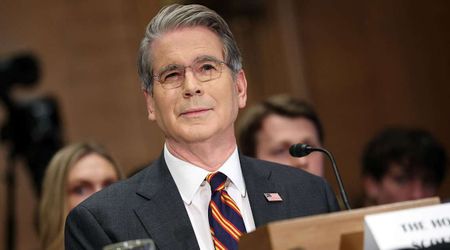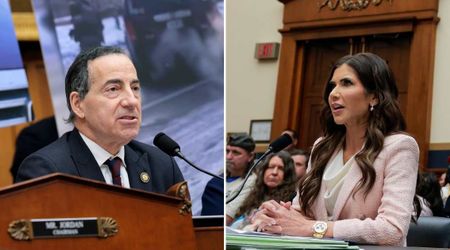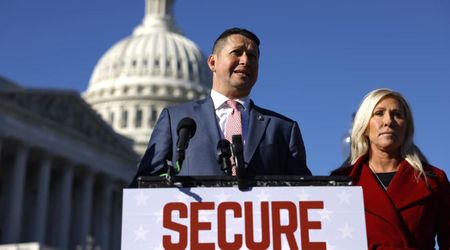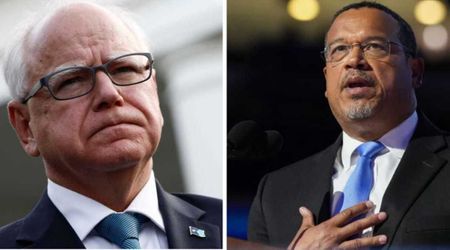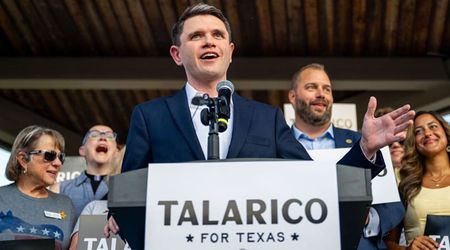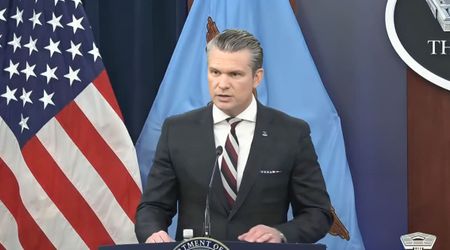Biden administration blasted for latest crackdown on gas car manufacturers to force EV mandate, Internet calls it ‘fascism’
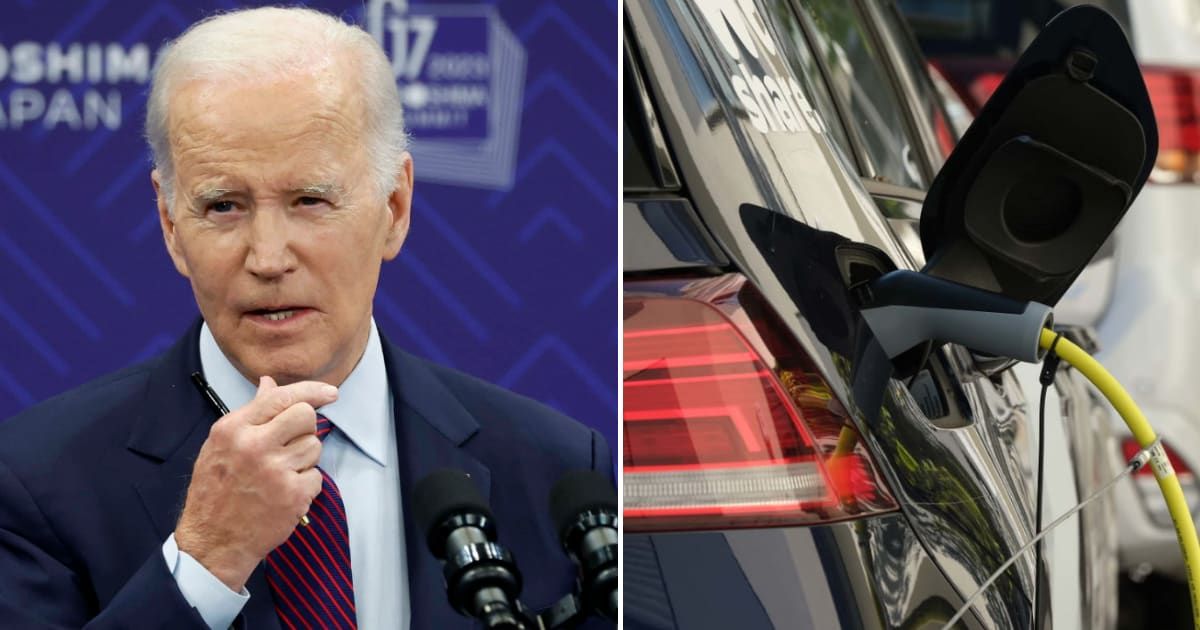
WASHINGTON, DC: President Joe Biden's recent actions have impacted America's gas car manufacturers following the gradual implementation of EV charging points, which has been duly criticized as “pathetic”.
The Transportation Department has informed automakers that they must increase their cars' fuel efficiency by an additional 16 miles per gallon within eight years to remain competitive.
Furthermore, the fuel efficiency of their trucks will need to double, according to DailyMail.

This directive comes shortly after the Environmental Protection Agency (EPA) reduced the limits on tailpipe emissions as part of the White House's commitment to ensuring that over half of all new vehicles sold are electric by 2032.
However, the administration has acknowledged that only seven EV charging stations have been constructed since the approval of a $5-billion program in 2021.
Sen Jeff Merkley (D-Or) described the situation as "pathetic" during a Senate hearing on Wednesday, June 5.
“Something is terribly wrong and it needs to be fixed,” he remarked.
What new directives under Biden administration’s Transport Department entail?
The latest rules introduced by the Biden administration's Department of Transportation require significant changes to fuel efficiency standards for vehicles.
These new regulations impose average miles per gallon (MPG) limits across manufacturers' entire product lines, incentivizing the production of electric vehicles to meet the set targets more easily.
By 2031, passenger cars will be required to achieve an average of 65 miles per gallon, a substantial increase from the current average of 48.7 miles per gallon.
View this post on Instagram
Similarly, pickup trucks and sport utility vehicles will need to achieve an average of 45 miles per gallon, up from the current 35.1 miles per gallon.
Furthermore, heavy-duty pickup trucks and large vans will be required to almost double their fuel efficiency, from 18.8 to 35 miles per gallon.
The stringent new regulations aim to reduce carbon emissions by nearly eight billion tons by the mid-century and have received positive feedback from environmentalists and health advocates.
View this post on Instagram
Harold Wimmer of the American Lung Association stated, “Today's final rule is another important step toward reducing carbon pollution and curbing climate change.”
However, it is important to note that 25 Red States, i.e., states with Republican governance, have filed a lawsuit contesting the new tailpipe rules, citing concerns over potential job loss.
Kentucky Attorney General Russell Coleman claimed, “The Biden administration is willing to sacrifice the American auto industry and its workers in service of its radical green agenda.”
“We just aren't buying it. Demand for EVs continues to fall, and even those who want to buy one can't afford it amid historic inflation,” he added.
View this post on Instagram
Transport Secretary Pete Buttigieg justified the new emissions standards to Americans, by saying, “Not only will these new standards save Americans money at the pump every time they fill up, they will also decrease harmful pollution and make America less reliant on foreign oil.”
“These standards will save car owners more than $600 in gasoline costs over the lifetime of their vehicle,” he further explained.
Trouble owning an electric vehicle (EV)
In the preceding year, electric vehicles (EVs) represented merely 7.6 percent of new car sales, and recent market performance has shown signs of weakness, as EVs continue to command a premium of approximately $6,000 over similar gas-powered vehicles.
Although the average price of EV models experienced a nine percent decrease last year, the median cost still stood at $55,252 in April, according to Kelley Blue Book, a renowned industry publication.
In several states, EVs comprised as little as 3 percent of new car sales, while a recent survey indicated that owners drive them 20 percent less than gasoline-powered cars due to concerns about the scarcity of charging infrastructure potentially stranding them.
View this post on Instagram
President Biden's proposed $1 trillion Inflation Reduction Act envisions the establishment of 500,000 charging points nationwide by 2030. Regrettably, as of the beginning of this year, fewer than 183,000 of these charging points were operational.
Karl Brauer, Executive Analyst at iSeeCars, noted that "range anxiety" and inadequate charging infrastructure remain paramount concerns for EV drivers, likely restricting the distances they are willing to drive.
Additionally, the fledgling nature of EV technology has led to a reported 79 percent increase in operational issues for EV owners compared to combustion engine vehicle owners, as per a Consumer Reports survey encompassing over 330,000 car owners in April.
Common grievances among EV owners included challenges with battery and charging systems, as well as defects in body panels and interior component fitment.
View this post on Instagram
The debate concerning electric vehicles is poised to assume a central role in the lead-up to the upcoming presidential election in November, particularly in light of former President Donald Trump's derogatory dismissal of President Biden's initiatives as the “green new scam".
The 2024 presumptive GOP nominee has pledged to overturn Biden's climate policies, which encompass federal backing for electric vehicles.
During his Thursday, June 6, speech at an Arizona rally, former President Trump said, “We want to get rid of the electric mandate for the cars.”
"If you want to buy a different kind of car, you're going to, you have to have a choice,” he emphasized.
View this post on Instagram
According to a survey conducted by market analysts Edmunds in April, drivers have articulated four primary demands for electric vehicle (EV) manufacturers.
These demands encompass the need for reduced prices, extended driving ranges, a wider array of vehicle models to choose from, and an increased availability of offerings from reputable brands.
“The electric vehicle market is growing, but consumers have enough reservations about the current options and charging infrastructure challenges to limit more significant growth in the short term,” said analyst Jessica Caldwell.
Internet reacts to Joe Biden's EV mandate forcing gas car manufacturers to raise their cars' fuel efficiency
The Biden administration asking gas car manufacturers to double their cars' efficiency has come in for criticism.
One X user remarked, "Forcing the populace to do something they don’t want or else … is fascism."
Forcing the populace to do something they don’t want or else … is fascism ⚠️⚠️⚠️⚠️
— weim#3! (@weim_mm97) June 8, 2024
Another user said, "We can’t even keep electricity on in California."
Another user wrote, "Trump will fix that…ignore this. Nothing but the ramblings of a senile old man."
Trump will fix that…ignore this. Nothing but the ramblings of a senile old man.
— Gnu (@gnu_penguin) June 8, 2024
One user claimed, "Killing gasoline cars does not help EVs whatsoever, Biden is a maniac."
Killing gasoline cars does not help EVs whatsoever, Biden is a maniac.
— PAUL🇺🇸 (@mrPAULwayne) June 8, 2024
Another X user remarked, "Don't care. Still not buying one."
Finally, this user tweeted, "People ignore what Biden is doing because they hang on to the hope that Trump will reverse much of Biden's non-sensical policy initiatives. Biden is too cavalier to see it, but the communists with which he has surrounded himself deliberately implement ruinous policies."
People ignore what Biden is doing because they hang on to the hope that Trump will reverse much of Biden's non-sensical policy initiatives.
— America Cannot Survive Another Election Theft (@ZurichSee1988) June 7, 2024
Biden is too cavalier to see it, but the communists with which he has surrounded himself deliberately implement ruinous policies.
This article contains remarks made on the Internet by individual people and organizations. MEAWW cannot confirm them independently and does not support claims or opinions being made online.




